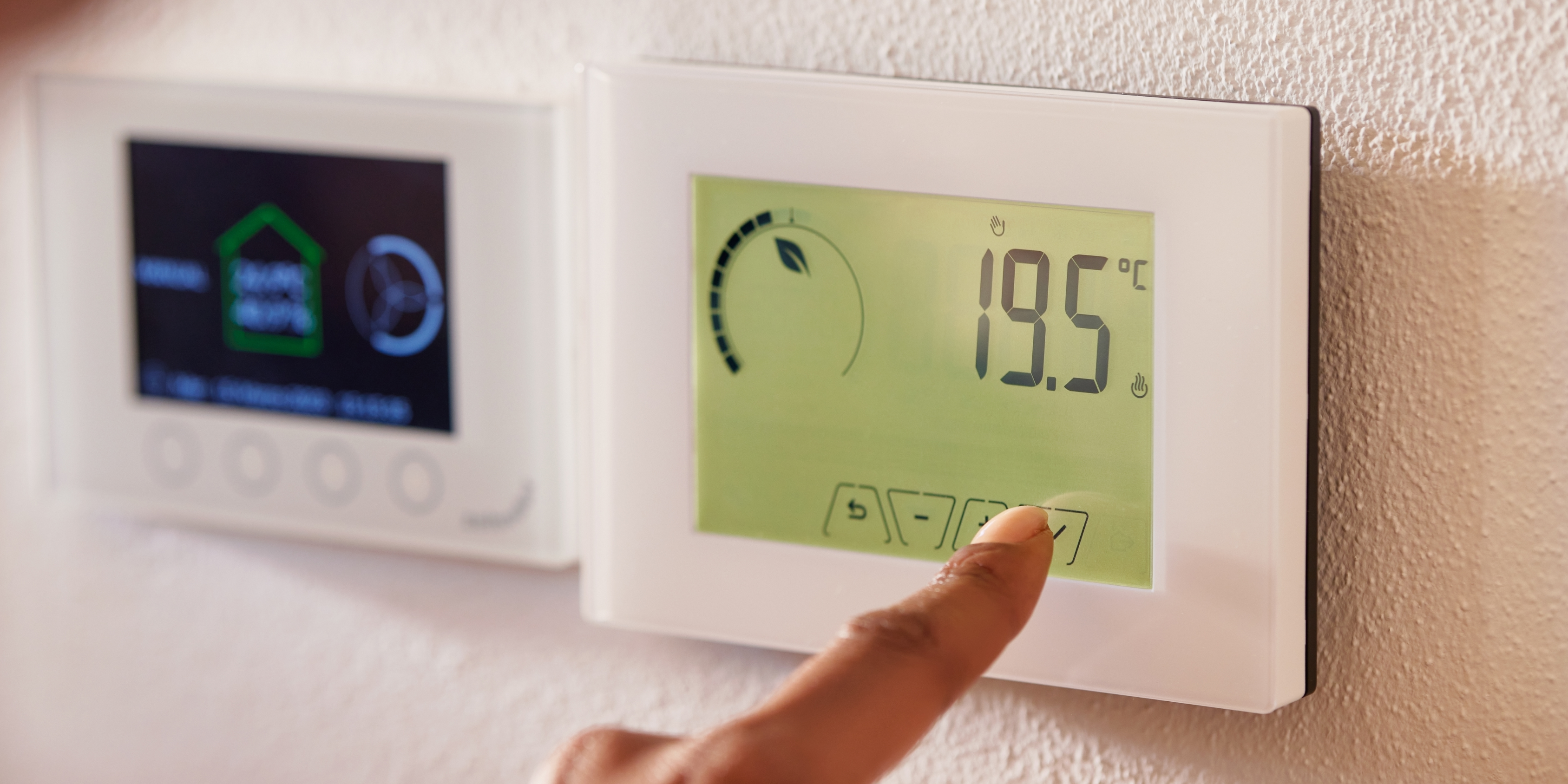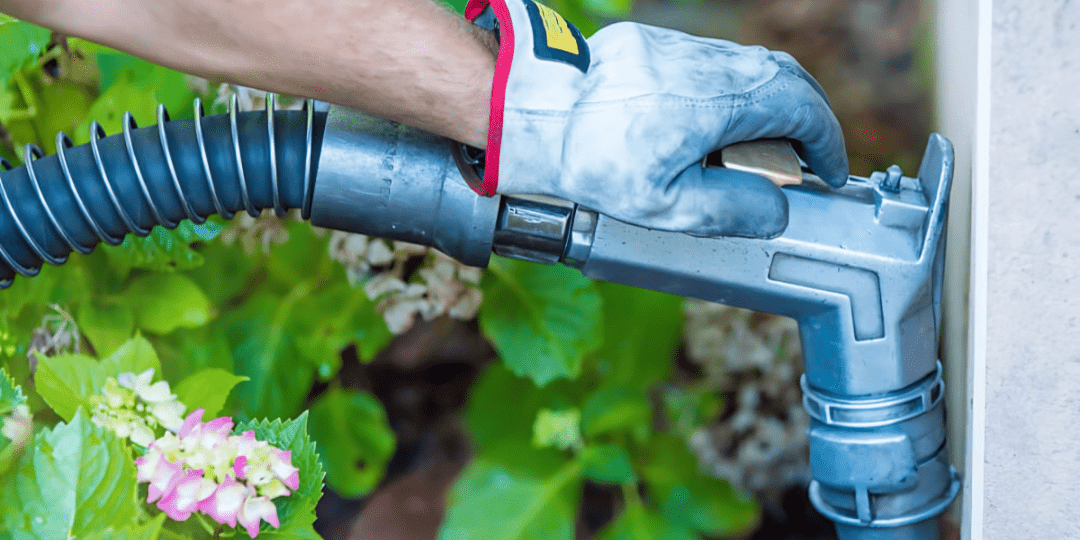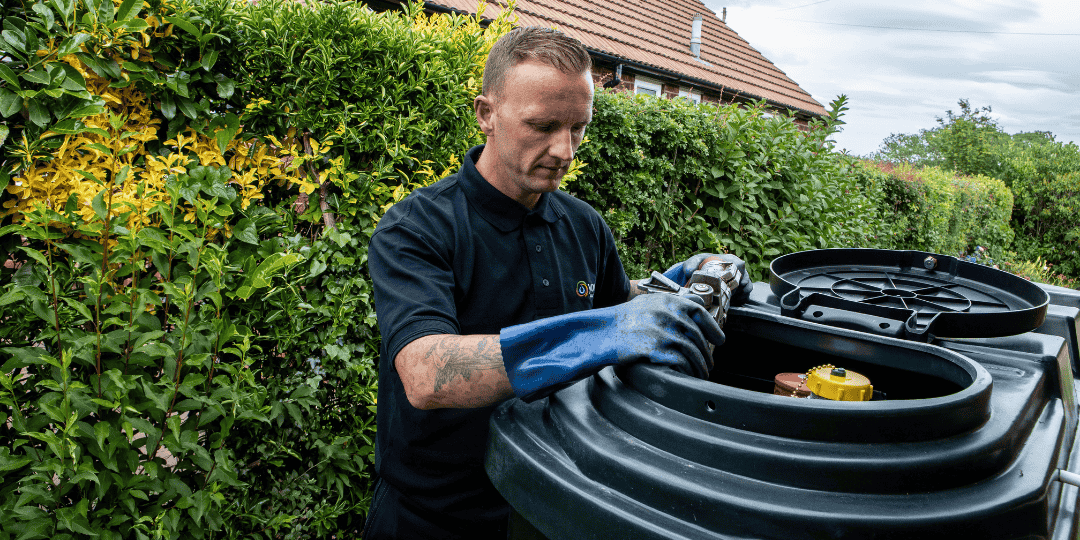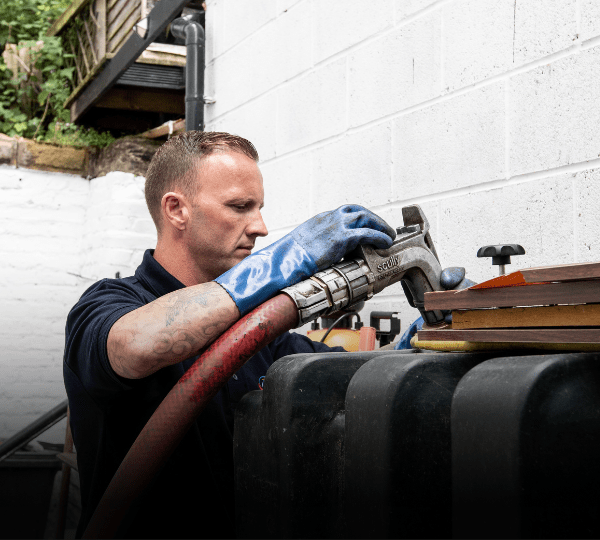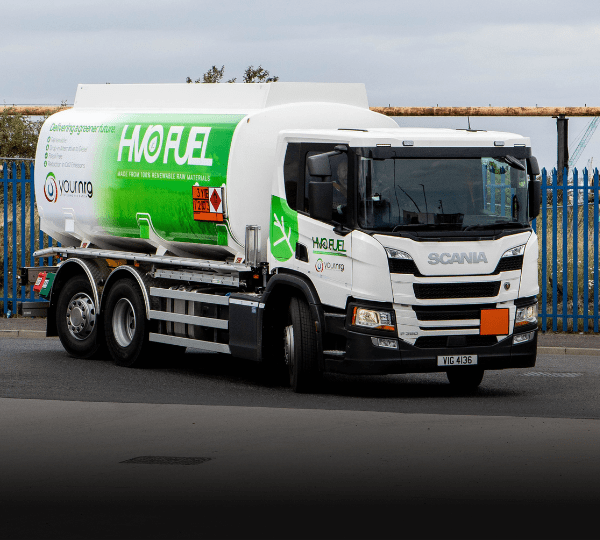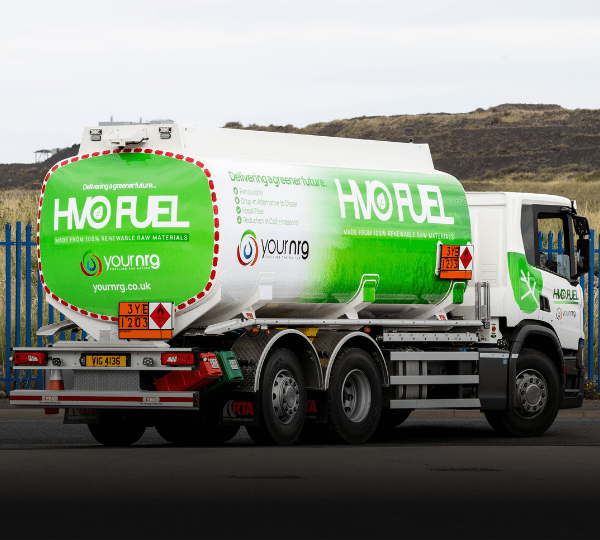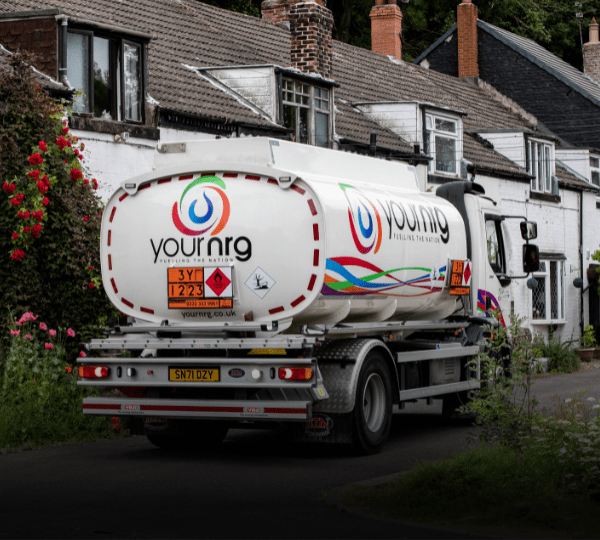Here at Your NRG, we recognise that small changes in your daily habits can make the world of difference in your household energy consumption and expenditure. From effectively draught-proofing your home to turning down the temperature - it all makes a difference! Whether you’re looking to reduce your carbon footprint or to reduce your household bills, our energy-saving tips can help you boost your home’s efficiency.
Heating and Hot Water
A great place to start when you’re looking to save on energy is with your heating and hot water systems. This is because, more often than not, these systems account for a significant portion of your energy usage. So, making some simple, yet strategic, adjustments can lead to substantial savings.
Adjust Your Thermostat: Lowering your thermostat by just one degree could save up to 10% on your heating bill! This is because the energy required to maintain a higher temperature increases as heating systems work harder to compensate for heat loss around your household, especially during the colder months.
Install A Smart Thermostat: We also suggest that you consider installing a smart thermostat to help control your heating system remotely. Smart thermostats offer a helping hand in cutting your household’s energy consumption because you can also optimise your heating settings based on your routine/ schedule.
Insulate Your Home: Another great way to save energy is to insulate your home properly. Ensuring that your home is well-insulated may seem like a minor stepping stone in slashing your household’s energy usage, however, it can make a huge difference. By sufficiently insulating your walls, roof, and floors, you can significantly reduce heat loss, especially when coupled with draught-proofing techniques.
Hot Water Tank Jacket: If you use a hot water tank, investing in a jacket for it may seem silly, but in actuality doing so could save you about £50 a year! This is because utilising a jacket for your hot water tank substantially lessens any heat loss and energy wastage - helping you to save in the long run.
Annually Bleed Your Radiators: Bleeding your radiators every year helps to ensure that they’re operating efficiently. This makes for a more effective heating system, ensuring less energy wastage and cheaper heating bills! By releasing air from your radiators, you enable hot water to freely circulate - improving your energy performance and prolonging your radiators’ lifespan.
Kitchen
In many households, kitchens are the bustling heart of the home, but they can also be a big contributor to your energy consumption. Implementing energy-saving practices can reduce your kitchen’s energy footprint and contribute to cheaper household bills.
Try Efficient Cooking Methods: Using energy-efficient cooking methods such as slow cookers and/ or air fryers consumes less energy in comparison to conventional ovens. Batch cooking/ preparing meals can also help to save energy because cooking larger quantities in one go reduces the amount of time that your oven (or whichever kitchen appliance you’re using) is being used.
Alter Your Fridge and Freezer Settings: Another method to reduce your household energy consumption is to adjust your fridge and freezer settings. We recommend setting your fridge temperature at 5° and your freezer at -18° as these temperatures keep your food preserved and harmful bacteria at bay. We also recommend regularly defrosting your freezer and fridge to maintain their efficiency as ice buildup can cause your fridge and freezer to consume more energy.
Use Your Dishwasher Efficiently: Running your dishwasher when it’s full also helps to boost your household’s energy efficiency. This is because dishwashers are designed to use a specific amount of water per cycle, regardless of how full your dishwasher is at the time. So, running it on a half load is quite literally pouring your water down the drain - leading to higher water and energy bills. Utilising your dishwasher’s eco-friendly modes also helps to minimise your energy usage without sacrificing your machine’s performance.
Laundry
Doing your laundry is always a chore but a regular homely task, however, it can also lead to higher energy usage if not managed wisely. Fortunately, we have some tips and tricks up our sleeve that you can employ in your laundry routine to be more energy-efficient and cost-effective!
Try Washing Your Clothes At A Lower Temperature: A simple, yet effective method to incorporate into your washing routine is to set your washing machine at a lower temperature. We recommend doing your laundry on a 30° cycle as this can reduce your washing machine’s energy usage by up to 40%! We also recommend air-drying your laundry wherever possible, as this could save your household up to £60 annually, effectively preventing you from washing your money away.
Only Wash Full Loads: Another cost-cutting method to adopt when doing your laundry is to only wash full loads of clothes or materials. This helps to maximise your washing machine’s efficiency whilst simultaneously minimising its energy consumption. Washing full loads also reduces the number of cycles that you need to get through your washing - meaning less stress on your washing machine (helping to prolong its life) and less stress for you!
Bathroom
Our bathrooms are essential for our day-to-day routines, however, they can often be a hidden source of energy wastage. Being mindful of your habits and making small changes can help to minimise energy consumption without compromising your bathroom’s functionality.
Limit Your Shower Time: Although a long relaxing shower is no doubt a guilty pleasure for most, reducing your shower time to four minutes could save you up to £70 a year on water heating costs. This is because using less hot water reduces the amount of energy needed to heat it - translating to lower energy consumption and bills! Typically, heating water accounts for 12 - 20% of household energy costs and usage, demonstrating that small reductions can help to make the biggest difference!
Water-Saving Fixtures: We also recommend installing low-flow showerheads and tap aerators to assist in lowering your energy and water usage. These innovative fixtures are designed to maintain energy performance while lowering the flow rates to help conserve water and energy without sacrificing performance.
General Tips
Beyond specific rooms and activities, there are household-wide strategies that you can incorporate into your daily life to improve the efficiency of your entire living space. By applying the below tips, you can cut your energy consumption and costs to be more efficient overall.
Use LED Lighting: Replacing traditional incandescent light bulbs with LED bulbs is a bright idea. This is because LED bulbs require 80% less energy than incandescent bulbs and have a longer lifespan, lasting up to 25,000 hours, meaning fewer replacements, less energy usage, and lower overall costs.
Always Turn Off Standby: A common misconception is that leaving devices on standby is a convenient way to save energy. However, this is far from reality; leaving devices on standby typically accounts for up to 8% of energy usage in households. Some households spend £60 - £80 annually by leaving devices on standby, meaning standby mode not only eats away at your energy but also your wallet! We recommend, wherever possible, to turn devices completely off rather than leaving them on standby.
Consider A Smart Meter: To further help you get a grip on your energy consumption, we recommend having a smart meter installed. Smart meters are brilliant tools for monitoring your energy usage as they provide holistic real-time reports. These reports help homeowners to identify high-use appliances, enabling them to accordingly adjust their habits. By tracking your household’s energy usage, you can make more informed decisions about your energy spending habits.
Educate Your Household: Another great way to ensure that your home is energy-conscious is to promote awareness and mindfulness amongst household members. We recommend educating your household members about energy-saving practices as teamwork makes the dream work! Joint efforts are more effective than lone efforts, so ensure to get your household on board with your new energy-saving habits.
In summary, implementing energy-saving tips can significantly reduce your household energy consumption and bills. By adopting simple practices, such as using LED light bulbs, switching off appliances, and washing clothes on cooler temperatures, you can significantly lower your energy usage, wastage, and bills.
Looking to further enhance your savings? Get a quote today and discover our unbeatable savings on home heating oil.
